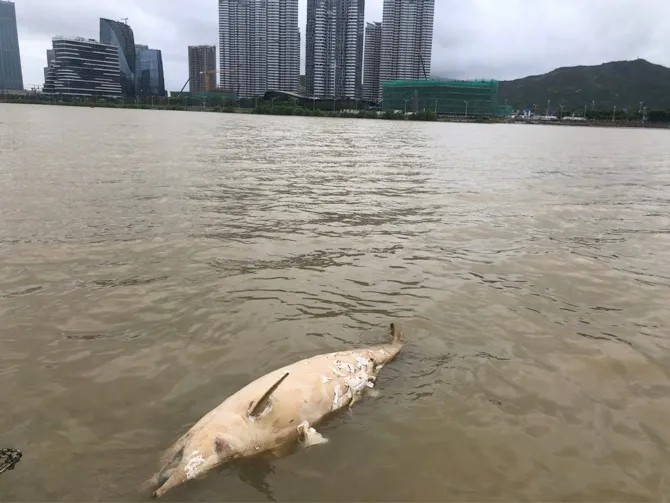
The Environmental Protection Bureau (DSPA) ensures that all possible impacts on the preservation of the Chinese white dolphin species, existing in the waters of the Pearl River Delta, will be assessed in the context of the construction of the controversial ecological island.
In a reply to lawmaker Ron Lam, DSPA director Raymond Tam confirmed that the upcoming phase of the project’s environmental impact assessment will include the publication of the consultation text on the “Environmental Impact Assessment Report.”
The report will feature findings from the research conducted on Chinese white dolphins. Additionally, details on “environmental mitigation measures” will also be disclosed.
DSPA emphasizes that the initial phase of the environmental impact assessment for the ecological island adhered to the standards outlined in the Environmental Impact Assessment Law of the People’s Republic of China (PRC) and the Public Participation Measures in Environmental Impact Assessment.
Tam also addressed the issue of construction waste management, stating that the use of inert construction and demolition materials for reclamation can only be a supplementary method, and that the government has set up mobile screening facilities at the landfill to prioritize the use of screened and qualified materials.
The construction of the ecological island is seen as a long-term solution to Macau’s construction waste problem, “contributing to the city’s sustainable urban development.”
The bureau director acknowledged the limitations of Macau’s natural endowments, geographical location, and water quality conditions in determining the site selection for the ecological island.
However, Tam emphasized that the current site is the best option after comprehensive consideration.
“The government has emphasized on multiple occasions that the choice of the site for the ‘ecological island’ is contingent upon various factors including nature, geographic location, water quality conditions, and the current state of exploration and utilization of maritime areas. Consequently, after careful deliberation, the current location has been determined to possess the highest level of feasibility,” Tam said.
The ecological island project drew criticisms from lawmaker and environmental groups.
Earlier this year, there was a call to halt the proposal to put a landfill off the southern coast of Coloane.
In the description of an online petition, the group predicted the landfill will damage marine life, intensify water pollution, and risk the health of aquatic activities practitioners.
More importantly, it will destroy the ecology of Indo-Pacific humpbacked dolphins, he said. The dolphin is a national Tier-1 key protected animal.
The government was also criticized for failing to provide any scientific data to support the “unique necessity” of the project, and no environmental assessments were produced.
The Hong Kong Dolphin Conservation Society has also urged Macau authorities to build construction waste screening and processing facilities instead of an artificial island made from the debris.
In a statement, the group has said the ecological island proposal is not an effective solution to Macau’s waste issues.
